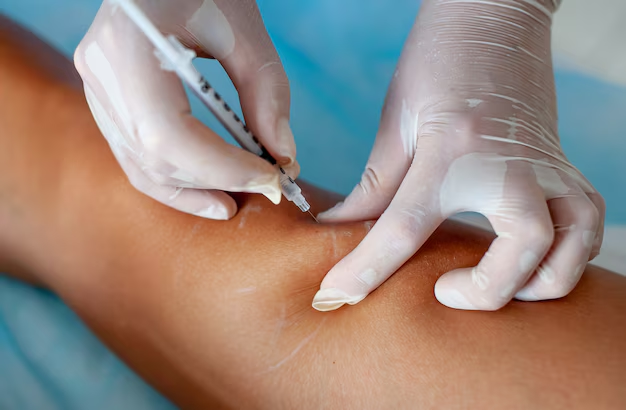Your Guide to Does Medicare Cover Knee Gel Injections
What You Get:
Free Guide
Free, helpful information about Medicare Insurance and related Does Medicare Cover Knee Gel Injections topics.
Helpful Information
Get clear and easy-to-understand details about Does Medicare Cover Knee Gel Injections topics and resources.
Personalized Offers
Answer a few optional questions to receive offers or information related to Medicare Insurance. The survey is optional and not required to access your free guide.
Are Knee Gel Injections Covered by Medicare? Here's What You Need to Know
Knee pain can be more than just a nuisance; it can be a major obstacle keeping you from enjoying everyday activities. For many, knee gel injections offer a promising solution to chronic discomfort, but a critical question remains: Does Medicare cover these treatments? The answer is yes, but with some specifics worth noting.
Understanding Knee Gel Injections and Medicare Coverage
Knee gel injections, also known as viscosupplementation, involve injecting hyaluronic acid directly into the knee joint. This procedure is often recommended for individuals suffering from osteoarthritis when traditional treatments, like pain relievers and physical therapy, have failed to provide relief.
Medicare Part B may cover knee gel injections if they are deemed medically necessary and prescribed by a healthcare provider following a thorough evaluation. Under typical circumstances, Medicare only covers the cost of injections after other non-surgical treatments have been attempted.
To be eligible for reimbursement, the procedure must be performed in a Medicare-approved facility and coded correctly by the medical provider to ensure claims are processed without hitches.
What Are Potential Costs?
Even with Medicare coverage, recipients are usually responsible for a portion of the cost. Here are key financial aspects to consider:
- Coverage is 80/20: Medicare Part B typically covers 80% of the procedure, leaving you responsible for 20% of the cost.
- Part B Deductible: You must first pay your annual Part B deductible before Medicare begins to cover its share.
- Supplemental Insurance: If you have a Medigap policy, it might cover your co-payment responsibilities, cushioning potential out-of-pocket expenses.
Exploring Financial Assistance Options
If meeting out-of-pocket expenses or copayments seems daunting, or if you don’t have supplemental insurance, consider some financial assistance avenues that might ease the burden:
Government Aid Programs
- Medicaid: For low-income individuals, Medicaid might serve as additional support, covering more aspects of medical treatment than Medicare alone.
- Extra Help Program: Known officially as the Low-Income Subsidy (LIS), this can aid with Medicare Part B premiums and deductibles.
Financial Tools and Resources
- Credit Card Solutions: Consider opening a healthcare credit card with low interest or promotional zero-interest plans to spread the cost over time without immediate financial strain.
- Medical Loans: Specific loans for medical procedures allow for structured payments tailored to your financial situation.
Educational Grants
- Health Education Workshops: Attend workshops to learn about health management techniques that could minimize future expenses and get informed about available local health resources and subsidies.
Your Resource Toolbox
🩺 Medicaid: Additional support for those with low income.
📉 Extra Help Program: Reduces premiums and deductibles for qualified individuals.
💳 Low-Interest Credit Cards: Manageable payment plans for healthcare expenses.
📚 Health Education Workshops: Learn how to better manage knee pain and access local resources.
🤑 Medical Loans: Tailored loans to help with medical expenses, offering flexibility.
Understanding the nuances of Medicare coverage for knee gel injections can make a significant difference in managing both your knee pain and your finances. Evaluating all available assistance options ensures that you not only regain better mobility but do so in a financially sustainable manner.
What You Get:
Free Medicare Insurance Guide
Free, helpful information about Does Medicare Cover Knee Gel Injections and related resources.

Helpful Information
Get clear, easy-to-understand details about Does Medicare Cover Knee Gel Injections topics.

Optional Personalized Offers
Answer a few optional questions to see offers or information related to Medicare Insurance. Participation is not required to get your free guide.


Discover More
- Am I Elgible For Medicare
- Am I Enrolled In Medicare
- Am I Qualified For Medicare
- Are Adult Diapers Covered By Medicare
- Are Chemotherapy Drugs Covered By Medicare Part d
- Are Colonoscopies Covered By Medicare
- Are Covid Tests Covered By Medicare
- Are Cpap Machines Covered By Medicare
- Are Cpap Supplies Covered By Medicare
- Are Dental Implants Covered By Medicare
